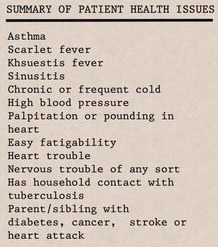#chronic fatig
Text
All the potential diagnoses for my bloodtests are like 'invisible illness' like girl I have a cane and have ordered crutches, clearly it's pretty damn visible.
3 notes
·
View notes
Text
Writing Modern Steve Roger's Health Issues: A compendium
AKA How do Steve Rogers' MCU canon illnesses hold up in a modern setting?
I am writing something that is SO NICHE and so NERDY I feel absolutely, positively deviant about it. Who knew you could have this much fun while eating a burrito and sitting in the sun on your back porch?
OKAY! This one goes out to all of you writing modern AU's with a modern Steve Rogers. (There are literally dozens of us!). Let's go.

So, I find it somewhat problematic when people write disabled or otherwise medically complicated characters and are wishy-washy about the diagnosis they have. In real life, everyone I know with ongoing medical issues is a fucking expert on their exact shit. A great tumblr reference for disabled characters is Cripple Characters, but I also use reddit threads to read about people’s day to day experiences with different issues in their own words. If nothing else, just decide what your character has and take ten minutes and read through a basic website article about it.
So let's walk through what modern Steve's medical history and diagnoses might be. If you feel like I missed any details or got things wrong, happy to have comments to that end.
We'll start with the list of “ailments,” going with the MCU canon and combining the images from the museum exhibit and screen shots of Steve’s enlistment forms:
Asthma
Scoliosis
Fallen arches
Partial deafness
Scarlet Fever, Rheumatic Fever
Heart arrhythmia
High blood pressure
Palpitation or pounding in heart
Easy fatigability
Stomach ulcers
Pernicious anemia
Nervous trouble of any sort
Sinusitis
Chronic or frequent colds

Caveat: I am not a doctor, but I am a person who enjoys reading medical journal articles about illnesses I do and don’t have. The human body is a fascinating and terrible place to live. Talk to me about your medical complications - I will always find them interesting. I love small talk about Crohn’s disease and/or extremely graphic details about the time you had surgery because one of your wrist bones was the wrong length.
Sucks To Your Assmar: Asthma! How has asthma changed?
Kids who have their asthma well managed at a young age are going to have less scarring and lung damage (this is called airway remodeling). Thus a modern kid will likely have less severe asthma than a kid born in Steve’s time. Further, allergy medicines got way better from the 1990s, so kids with allergy induced asthma would have had fewer attacks. Fewer attacks as kids = less severe asthma as they age.
I would also note that asthma is highly connected to environmental issues. If Steve grew up in a house with cigarette smoke, cockroaches, rats, or mold present, as is fairly easy to imagine, especially without dehumidifiers in a swampy Brooklyn summer, those are environmental factors that would have made his asthma much worse.
They are also all factors that kids today certainly face, depending on how you write your modern Steve’s childhood. While people today certainly can have very severe asthma, it’s also entirely possible that modern Steve’s relationship to his asthma is pretty chill and easy to manage. (My partner has relatively severe asthma with a lot of environmental triggers; modern allergy medicine was a big game changer.)
Let’s talk about scoliosis ~~
There are a lot of variations to how scoliosis impacts people. I have very minor scoliosis and it's barely a thing in my life. I’m not trying to speak for everyone, but for what it’s worth, there are professional athletes with spinal fusion. I used Kyra Condie as my justification for writing climbing coach post-spinal fusion small Steve Rogers in one fic. My younger brother and best friend in high school both had spinal fusions.
In reality the athletic and physical abilities of people with spinal fusion vary pretty much exactly as much as people without spinal fusion, so you have a lot of leeway for how you decide to write a character with scoliosis. I recommend reddit threads to read about people talking about how their bodies felt before and after spinal fusion, or why they decided not to have the surgery, if you want to get a sense of how it might affect your character’s day to day life.
Wait, so how tall is modern small Steve Rogers?
You can see in this article that gains in height post scoliosis corrective surgery/spinal fusion varies, but the mean was 27 mm (1 inch) and the maximum was 66 mm (2.5 inches).
The more severe the curve in the spine, the more height gained with surgery.
We know Steve had scoliosis, we don’t know how severe it was (do we?). But if he was 5’4” without spinal fusion, and with all of his childhood fevers, and possible poor nutrition due to the Great Depression and untreated stomach ulcers, then it’s very reasonable that a modern Steve raised with proper nutrition and his gastrointestinal issues (see below!) properly treated and a spinal fusion could be easily 1-10 inches taller.
I think it’s great if you want to write modern Small Steve as 5’4” - but I tend to write him as 5’7” or so.
I think it is entirely likely that a modern Steve Rogers could end up being 6 feet tall given modern medical intervention and a healthy digestive system and adequate nutrition. As an example of how people with more or less the same genetics having different heights due to environmental factors, I know of one family of four brothers that immigrated from Italy in the 40s. Their height was 100% correlated to their age when they moved to the US/started having access to food: the oldest brother was around 5’4” and the youngest around 6 feet. The oldest was also a chain smoker and worked full time from around age 8, so you know, he was a fucking badass 5'4" Italian guy, if that's not clear.
What about fallen arches?
Fun story, but I have fallen arches/flat feet and had a lot of foot pain as a kid, but I thought it was normal. I wear custom orthotics and/or birkenstocks and do exercises to strengthen my feet muscles and it's fine now as long as I remember to do the things I just mentioned. My dad had to have multiple surgeries on his feet, so I think it helped that they caught it earlier in me.
Should I write modern non-serum Steve as deaf?
Maybe! I think it’s lovely when people write characters with hearing issues. There are great blogs that cover ways to do that well (a good link, another one, and another one and I think this one on hearing aids is particularly good if you are trying to bring in subtle day to day routine differences a character that wears hearing aids may have. Another great option is, again, reddit, especially for questions around how sexual intimacy might vary in small ways that can be nice to bring in. (I am working on a fic with a seeing character whose ex is blind and also read a lot of couples first hand experience with sexual intimacy around that dynamic on reddit).
But how likely is it that modern Steve would be deaf?
I think that it’s reasonably likely that Steve’s hearing issues were a result of Scarlet Fever, which is a bacterial infection that can result in rheumatic fever, an inflammatory condition that develops in more severe cases of scarlet fever.
Scarlet fever caused deafness - in fact, both Helen Keller and Thomas Edison had hearing loss due to scarlet fever infections. Further, sustained fevers of over 104 degrees can also cause hearing loss, so there is a reasonable chance that some other fever caused Steve’s hearing issues.
Today, the kind of hearing loss caused by fevers and infections can usually be surgically repaired or never occur because we have better antibiotics and better medicines to treat fevers. However, I have a friend who has partial hearing loss and lots of other life long nervous system and fatigue issues due to complications from childhood chicken pox in the 80s (this vaccine came around in 1995).
I don’t know if it’s canon or fanfiction, but I often see Steve as having one bad ear. For what it’s worth, hearing loss in one ear is much less common than hearing loss in both ears.
However, potential causes of hearing loss in one ear are infections that result in a high fever and some kind of head trauma, both of which are easy to imagine would have affected a Steve born in 1918, and while possible in a modern Steve, also easier to avoid.
Heart Stuff: Heart arrhythmia, High blood pressure, Palpitation of pounding in heart, Easy fatigability
The aforementioned fevers that can cause hearing loss can also cause heart issues. I think it’s reasonably likely that Steve’s heart issues were from his fevers as a young kid, but I often write him with a congenital heart defect, because why not?
These days, most of the time, such issues are detected at or before birth and fixed when the person is a baby, but there are plenty of heart issues that can require multiple heart surgeries at various points. Regardless, a modern Steve would most likely either have had access to corrective surgery or medication to manage these heart conditions. Which is not to say that he wouldn’t suffer mental and physical trauma from this medical complication.
There are plenty of professional athletes you can find who have all of the above heart issues. And plenty of people with heart issues who have no interest in being professional athletes, so like, follow your bliss.
Digestive System Stuff: Easy fatigability, Stomach ulcers, Pernicious anemia
I have easy fatigability under heart stuff too, because lots of shit can make you tired.
My personal head canon is that Steve Rogers has celiac disease and/or lactose intolerance, it would cause all of the above. Both can also lead to poor growth - in fact falling off growth charts is one of the most common symptoms of celiac disease in children.
While people have been aware of celiac disease since there were people, gluten wasn’t identified as the clear cause till the 50s.
I typically write modern Steve with some kind of food allergy, and I think that addresses quite a few of his canon medical complications.
Because so many causes of this category of symptoms are relatively easily solved with modern medical intervention/avoiding the problem, I would point folks towards Crohn’s disease if you are looking to write a modern character with medical issue that is more likely to be an ongoing source of similar medical complications today.
(Also, kids with Crohn’s are likely to have reduced height. I have a friend who has Crohn's whose 3 siblings are well over 6 feet and he is around 5'8" (so 4-6 inches aka 11+ cm shorter due to his severe childhood illness).)
Nervous trouble of any sort
Kids with medical complications and food allergies are much more likely to have anxiety. I’m so proud of all the kids making it through the day with anxiety. Luff you anxiety kids, I see you working twice as hard to be present as the non-anxious kids. Tough as hell. Give yourself a high five. I’m so damn proud of you.
Sinusitis and Frequent colds
I mean, god bless modern decongestants and allergy meds. Celiac disease and lactose intolerance can both cause sinus issues, so here is another one of Steve's ailments that can be "cured" through that diagnosis.
Other stuff
When you look at the above, you can see a lot of scenarios where modern era Steve, like many children/adults today, had multiple surgeries and serious and scary health complications as a child, but as an adult would appear as a relatively healthy able bodied person, with the possibility of even becoming a top athlete if he was so inclined. It’s also likely that some issues like chronic fatigue etc, might linger into adulthood as relatively invisible illnesses that nonetheless affect his everyday.
In some ways his character arc given the advances of modern medicine could mimic his arc due to the serum.
Being medically complicated as a kid sucks. Even if you have surgeries to treat and/or learn how to live with things like Crohn’s and celiac and reduce flare ups, lingering mental health trauma can have an impact.
Lastly and most importantly, I have a personal headcanon that young Steve Rogers of any era spent a lot of time sick in bed and staring into a mirror learning how to raise one eyebrow and perform other eyebrow gymnastics so he could more effectively sass his nurses.

IN CONCLUSION:
I think it's actually reasonable for an author to say, "My modern Steve never had any fevers, and got his severe lactose intolerance diagnosed as a baby, and had good nutrition, had medications/clean environment that prevented his asthma."
So this Steve is 6 feet tall and healthy as long as he doesn't eat dairy and takes his daily zyrtec (cetirizine - it's an allergy med). The only medical issue he has from canon left is scoliosis, flat feet, and an astigmatism.
You can also choose to write a Steve with more complex medical issues, and there are lots of things that can be good and interesting and value about that. I think the main thing is to pick a diagnosis and write it realistically, hopefully this helps some with that!
#stucky fanfiction#smol steve#writing disability#steve roger#pre serum steve rogers#modern steve rogers#honestly whats wrong with me#I don't even know but I feel like I'm dealing with my mental illnesses well enough and I had fun writing this#meta#headcanon#stony fanfiction
440 notes
·
View notes
Text
Steve’s Endgame Ending fixed
What if at the end of Endgame when Steve is returning the stones, he has to give up something he loves, right? So what if he gives up his super-serum effects (an au tweaked and borrowed from @growingpaynes-art ), and turns back into pre-serum-Steve? A list of reasons why I think this would work:
A) Straight off the bat it’s easy to keep Steve in the MCU with Chris Evans’ contract ending if they replace the actor who plays pre-serum-Steve (obviously with a guy who looks similar to the first movie, but without the CGI). I know people might be confused why he looks different but the MCU’s changed actors before and it’s not the hardest stretch of the imagination. Also thematically it’d be cool to have Steve be literally unrecognisable to the audience.
B) I think a lot of writers for the Avengers are so focused on writing ‘Captain America’; ‘bland, stoic, with no sense of humor’, that they forget about Steve Rogers; the young disabled man who would put his life on the line to fight fascists. This would be a great way to get back to the basics of Steve’s character and show the audience who he truly is.
C) Honestly it would just be nice to show that Steve is just as righteous and brave with his disabilities, something not often shown in media. Even the MCU likes to focus on Steve’s asthma and ignore that he actually was disabled. (which i’ll touch on in a second).
*and now for some more headcannon-y stuff*
A) From screenshots from the movie, and a list at Disneylands Tomorrowland exhibit, the canon list of Steve’s disabilites and health problems are:
Asthma
Anemia
Diabetes
Color-blindness
Arrhythmia
Scoliosis
Chronic colds
High blood pressure
Easy fatigability
Heart trouble
Sinusitis
Fallen arches
Partial deafness
Stomach ulcers
Pernicious Anemia
Astigmatism
Nervous troubles of any sort
History of; scarlet fever, rheumatic fever
(Jesus Christ Steven)
B) It’d be cute to see Steve actually be able live with his disabilities, unlike in the 30’s. I cannot stress how much eugenics there was back then (and still is now, but WAY more casually acceptable back then). Even the actual Captain America storyline reeks of it a bit; experiment on a disabled man to ‘fix’ him and turn him into a soldier. However in the 21st century imagine if he could get the help he actually needs! Obviously a lot of his stuff is chronic, but he could actually live with it instead of just surviving like he would have done. And be able to afford them, unlike back in the Great Depression. Back braces, inhaler, mobility aids etc. It’d be nice to see a disabled person living with themselves as the HAPPY ending, instead of as a tragedy as it’s usually played.
C) The story of him actually seeing worth in his old (new?) body and himself instead of just a vessel for Captain America. A self-acceptance arc. Being able to retire in peace without anyone recognising him as Captain America without having to give up his life in the 21st century.
D) The Smithsonian exhibit is so closely tailored to his propaganda persona that it fails to acknowledge him as a person. I wouldn’t be surprised if the general public has never even seen a photo of him pre-serum, or knew how bad his illnesses were besides ‘just asthmatic and skinny’. He could easily walk around and not be noticed by anyone.
Tldr: Steve’s proper ending in Endgame should have had him return to his skinny form in exchange for the stone, and him being able to retire to finish art school in peace.



#mcu#endgame#avengers endgame#steve rogers#captain america#endgame critical#anti endgame#stucky#stevebucky#marvel#marvel cinematic universe#rewrite#russos#russo brothers#chris evans#sebastian stan#bucky x stan#long post
59 notes
·
View notes
Text
i feel like yall like it when i post ocs, so heres one more


Meet René Duplec !
Since in the Fleurbox universe nearly everyone has a power, René's power centers around her insane spatial memory, being able to remember every crack and crevice of a place she's been in almost perfectly. This goes well with him since he's a spy, usually making maps of locations by demand. Some of her interests include cartography (of course), certain knowledge of architecture and its history, and some basic knowledge of technology.
His personality is a mix between a snarky idiot and a droopy fellow that just needs a break. He also tends to come off as short-tempered as a secondary effect of his chronic condition. Being constantly fatigated with your hands and knees hurting to the point of needing breaks that could last weeks is no joke.
Some other possibly important trivia facts are that she's about 28 years old, her weapon of choice the pair of scissors you're seeing, and that he can pass both as a man or a woman. He doesn't mind any denominations or nouns, insane thing when one's a spy.
(Fleurbox belongs to @shamefulzombie. More René pics below the cut.)




"you wouldn't hurt a chronically ill person, right?"


i love drawing angry people
56 notes
·
View notes
Text
The field of post-infectious diseases didn’t (except for ME/CFS) exist prior to the coronavirus. The medical field focused on treating infections – not dealing with their aftermath. Recent studies indicate why that’s not going to fly anymore – and it’s not just because of ME/CFS. It’s because large studies are indicating that a coronavirus infection – whether it’s mild or severe – is upping the risk for all sorts of diseases.
Most of these studies are very large – running into the millions of participants – that rely on electronic health records. They’re comparing the incidence of new diagnoses in people who were infected with the coronavirus with those who weren’t.
Eric Topol recently wrote a blog on the autoimmune implications of COVID-19. Three recently published large studies lead Topol to report a “substantially increased risk of developing a diverse spectrum of new-onset autoimmune diseases.“
The increased risk was not low – a 20-40% increase in the likelihood of coming down with one of these illnesses – and the range of autoimmune illnesses affected was diverse indeed: the studies pointed to dramatic increases in the diagnosis of almost 20 autoimmune diseases. (See blog for the diseases). Since autoimmune disease can take a while to show up after an infection, one can only assume that this number will rise over time.
Other studies have found a marked increase in neurological diseases, including some one might not have thought. Besides things like cognitive disorders, sharp increases in the rates of psychotic disorders, epilepsy, stroke, and parkinsonism as well as others.
Cardiovascular and metabolic diseases have not been as well assessed but increases in asthma, type I and type II diabetes, respiratory diseases, heart failure, and stroke have been seen.
Oddly enough, none of these studies have assessed increased incidences of the one disease long COVID has been most associated with – ME/CFS. Nor have they assessed new diagnoses of fibromyalgia, IBS, dysautonomia, postural orthostatic tachycardia syndrome (POTS), or gynecological diseases.
If you want more research into post-infectious illnesses, then linking an infectious event to dozens of serious illnesses can only help.
The study makes one wonder how many chronic illnesses were triggered by an infectious event.
For all of its horrendous impact, the coronavirus pandemic is clearly going to force the medical profession to take a very close look at what happens during an infectious event – and afterward – and that is good news for anyone with a post-infectious illness like ME/CFS.
86 notes
·
View notes
Text
"To grieve a person still alive, particularly oneself, is a surreal experience and one that I am not sure I will ever be able to adequately describe."
2 notes
·
View notes
Text
I love going to the doctors with one issue (chronic fatige) and coming out of the appoitnment with CFS and Fibromyalgia
0 notes
Text
The Highest Level of Oxygen Consumption Attained at Peak Exercise

An individual with no known risk factors can still develop heart disease as the medical guidelines endorse using risk calculators to determine a patient’s high risk of cardiovascular disease and to guide treatment recommendation. They can be mislabeling patients as healthy who in fact have hidden risk factors or small vessel disease like plaque in the arteries which is a chronic disease process that starts early in life. The results in diminished circulation throughout the body it is the leading cause of loss in quality of life and the leading cause of death od people. It is critical to identify the disease early and treat it aggressively before a heart attack, stroke, heart failure, dementia or loss in sexual function occur. When symptomatic patients have no identifiable coronary artery disease on a coronary angiogram, they are still at increased risk for a high risk of cardiovascular disease events. This will appear to be more common in women as many cases the abnormal cardiac response on a cpet may be the objective evidence of the patient’s potentially undertreated ischemic heart disease.
A cpet test is a stress test that assesses both heart and lung function during exercise and this test can help identify existing cardiovascular or pulmonary disease but it is different than a traditional stress test. Cardiologists perform treadmill or nuclear stress tests in attempt to identify patients with advanced blockages in their coronary arteries like severe disease that may require immediate intervention. With stent placement or open bypass surgery the patients can pass these stress tests and still have blockages in their arteries particularly their smaller ones. The small vessel disease leads to a gradual loss in circulation and slow loss of function and eventually even heart failure and death as the smaller plaques that are not completely occluding an artery can suddenly rupture. This will cause a blood clot that precipitates a heart attack or stroke which is the more common cause of a heart attack unlike regular stress tests. Without exposing the patient to radiation, the cpet is able to detect cardiovascular issues earlier, even when only the smallest vessels are involved.
Any patient who experiences shortness of breath or easy fatigability with exertion would highly benefit from a test but it is recommended to all the patients with cardiovascular risk factors get a baseline test. The sooner it can identify which patients have existing atherosclerosis, the sooner can suggest medications and lifestyle changes to stop and even reverse the disease process. The cpet can also be a beneficial tool for pre-operative evaluation that can more accurately identify patients who carry a higher risk for high risk of cardiovascular disease complications during surgery. A test has even been validated as an accurate tool to help assess operative risk in patients about to get bariatric surgery as the cpet helps to stratify the cardiac risk of each patient. Assessing the presence or absence of cardiac dysfunction even at an early stage as mainly through the assessment of peak exercise capacity. The information gathered during a test is used to calculate peak of highest level of oxygen consumption attained as the best measure of cardiorespiratory fitness known as functional capacity or exercise capacity and it is the predictor of longevity and all-cause mortality.
0 notes
Video
youtube
Body Pain Inflammation Relief | 741 Hz | Detox Bacterial & chronic fatig...
0 notes
Text
i need young chronically ill friends i feel like im just making my friends uncomfortable when i talk about it but its such a big part of my life how could i not talk about it
8 notes
·
View notes
Text
FANFIC UPDATES
The Fatigue May Be Chronic, But This Ass Is Iconic - DaiSuga - CHAPTER 2
When A Stranger Calls - BokAshi - CHAPTER 2
#my fic#the fatige may be chronic but this ass is iconic#when a stranger calls#daisuga#bokashi#bokuaka#daichi#sugawara#bokuto#akaashi#haikyuu!!#haikyuu#hq
9 notes
·
View notes
Text
it freakin breaks my heart to think about how much pain steve would’ve been in during his time at bootcamp ( before the serum )
#like he already has chronic joint pain#and back pain from untreated scoliosis#asthma ???#easy fatigability ???#and military drills are ??? so hardcore#it would be exhaustive for a healthy fit male#exhausting**#and for steve to attempt to keep up with them ???#never voicing the pain he was in ???????#I F REAKING CRY
3 notes
·
View notes
Text
Support disabled bisexuals.
Support chronically ill bisexuals.
Support bisexual children.
Support bisexual people of colour.
Support trans bisexuals.
Support non-binary and genderqueer bisexuals.
Support bisexual women.
Support bisexual men.
Support bisexuals. Listen to us when we tell you about our experiences and identities.
Celebrate with us!
#bisexuality#Bisexual#lgbt#lgbtq#international celebrate bisexuality day#bi visibility#bi visibility day#disability#chronic illness#ulcerative colitis#ibd#Inflammatory Bowel Disease#Chronic Fatige Syndrome#me/cfs#myalgic encephalomyelitis
10K notes
·
View notes
Text
travelling again tmr, flying to another city in canada then staying for like 3 days then we are going back home to scotland
honestly im so devoid of energy i just wanna go back home soon
#its nice seeing family for the first time in 4 years but damn i have never felt more dead and low energy since i first got my chronic fatig#fatigue
1 note
·
View note
Note
Hiya! I'm very thankful for you still answering my ramble^^ I do have depression so I have psych appointments weekly, and my psychologist also is a bit worried about me. Also, I'm autistic so I'm just very scared that i'd shut down at the GP's so I'm taking my mom. Also, I'm moving, so I'get a new GP nonetheless but I still just want to hear my GP say that he believes I'm really in pain? Idk, like, that he believes me? (Probs sending another one sorry >,
Also, Thanks @chronicillnessproblems for your input! I’m suspecting (H)eds or something similair. Also I’ve done a LOT of research on POTS and I read a lot of thing I find myself in. I’m gonna make a list with things I can’t do anymore and gonna take that when I go see him. Like, I’m almost 21 and I have to sit while showering, can’t ride a normal bike(only electric or else I’ll almost pass out) I sometimes have to stay home from work cause of the pain and ugh. Anyway, Thank you so much!
Oh right! Also, please feel free to post anything I send without response, I get how draining that can be^^ Byee!
Ok so I read these asks earlier this morning and I do want to say a couple of things, because I’m a little bit nervous about what you said.
First of all, I SUPPORT YOU AND WHATEVER YOU DECIDE TO DO. I really do. So what I have to say can be dismissed or ignored altogether and it will not hurt my feelings or make me any less supportive of you.
I DO NOT think you should return to this GP if you can help it. There is no doubt in my mind that you will be unable to convince them that you are experiencing pain. And I understand where this is coming from, I really do. We WANT to be affirmed by our medical care providers. It is super hard to battle our own demons and doubts in our heads as it is. But to have that nagging doubt that our doctor doesn’t believe us either just makes things 100% worse.
But they have made up their minds. And I don’t know your gender, but if you are a woman, this is something that is going to be happening to you repeatedly. Unfortunately there is a lot of evidence of medical bias against women that doctors refuse pain treatment to them using depression as an excuse. And this has a long history. I won’t go into detail but you can study up on the roots of “hysterical” diagnosis from last century and see where I am going with this.
Also medical practitioners can be assholes. And not only do they get to be assholes, but they get to document your visits anyway they choose and that information is now basically fact. Everyone used to joke about “permanent records” because that’s not exactly a thing. Except in this case it is.
This doctor can choose to label you as drug seeking, or “hysterical” or any number of things that will bias any future practitioners against you. Now being from the US I have zero idea how a fully functioning healthcare system is so I don’t know if your psychiatrist’s notes are also included in your medical records because here they are not. Which means this jackass’ notes will follow you for eternity while your Psychiatrists notes can get lost in the shuffle.
However, if you do choose to return to this GP, I would earnestly encourage you not to get your hopes up about them validating your pain. Since I’ve been sick I’ve had 3 medical practitioners that believed me out of 11. And this was after I had seen multiple specialists.
I ABSOLUTELY encourage you to take your mom. I am 43 but did not start getting the respect and treatment I needed from my doctors until I started taking my mom into the exam rooms with me. (She didn’t actually believe how dismissive they all were, which was the reason I took her in the first place, but suffice it to say the minute she saw what was going on, she lost her temper.)
I also would encourage you to get a letter from your Psychiatrist explaining that his PROFESSIONAL OPINION ON YOUR DEPRESSION is that it is not causing your physical pain. Your doctor will A. Be forced to argue with another medical professional. And B. be forced to add this letter to your medical file. Where it WILL become permanently attached to your current issues.
And this could be a phenomenal help later on as you do find new doctors.
Again, it’s your body and it is your life. There is no way I could ever have enough knowledge to tell you what you should be doing. I can only give you some things to consider from my experience, after going through this for almost 10 years now.
Please do not seek validation from someone who has already denied it to you. It will only hurt worse in the long run and cause more doubts. I have spent many afternoons crying over crappy doctor’s visits and I’d hate to see the same for you.
Ok since you said I didn’t have to comment, I’m just going to go ahead and not edit this… I hope it all makes sense. Keep us posted, if you feel like it. You’ll be in my thoughts.
Admin J
PS Followers if you have anything to add, please feel free.
#admin j#jackass doctors#helpful followers#chronic illness#shout out to#chronicillnessproblems#my partner in crime#and actual founder of this blog#you're doing great sweetie#akimasu#eta#i lied#i did kind of edit#i apologize for any confusion#but just know that I start to confuse homophones#and spell things phonetically#when I am fatiged#hence the 'use' instead of you#which made me feel east coast#yous guys#idk#i'm rambling now
8 notes
·
View notes
Text
Highlights
Elevation of FABP2, a marker of intestinal cell damage in ME/CFS.
Absence of optimal acute-phase LBP and sCD14 anti-microbial responses in ME/CFS.
Compensatory but inadequate B cell response to microbial translocation in ME/CFS.
Enhanced IL-10 regulatory response may drive the observed immunosuppression.
Glucose and citrate metabolic dysfunction in ME/CFS may link the IL-10 activation and suppressed anti-microbial responses.
2 notes
·
View notes